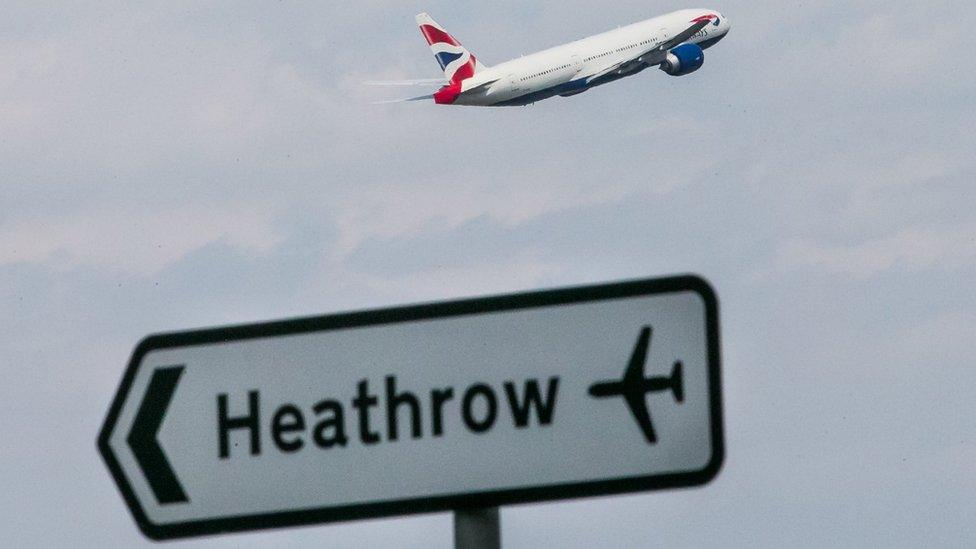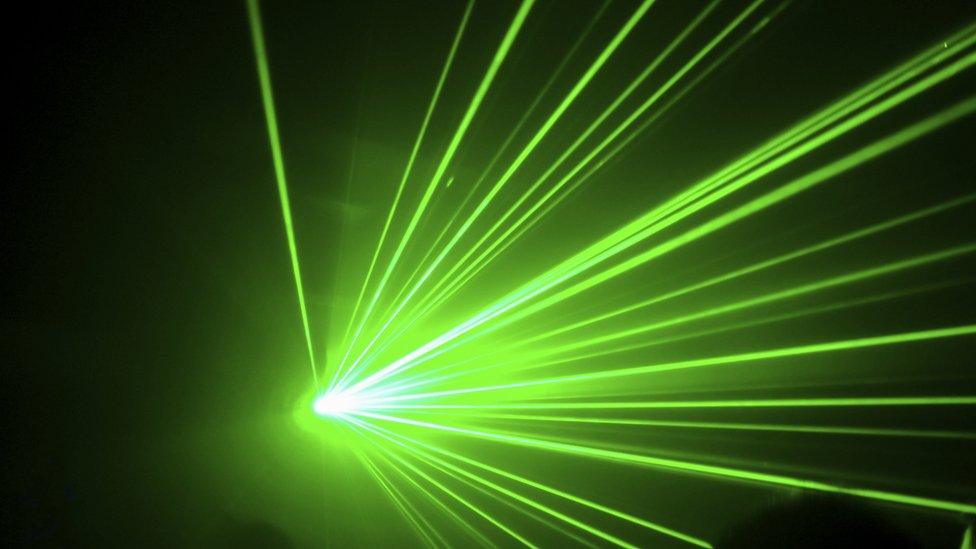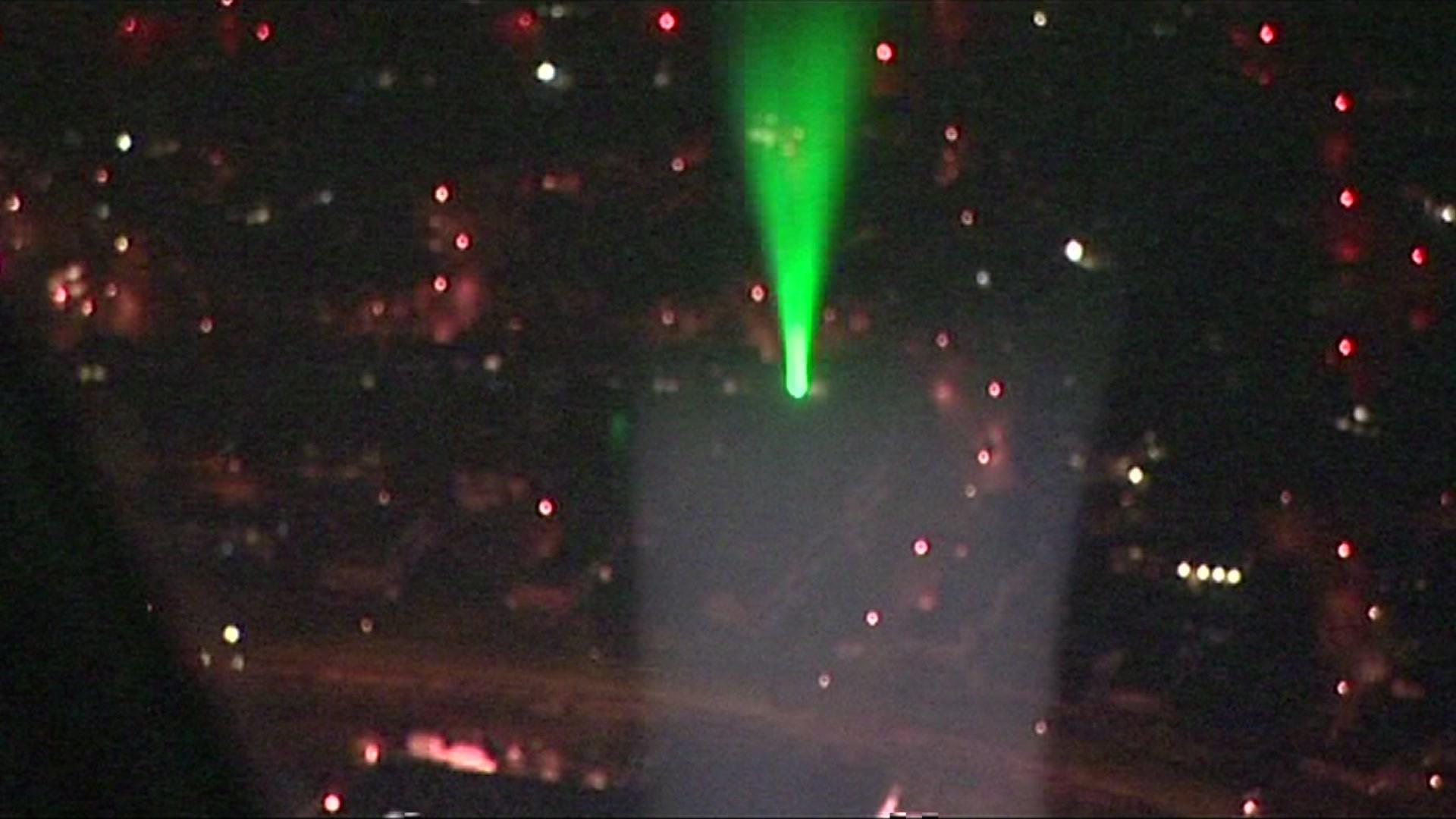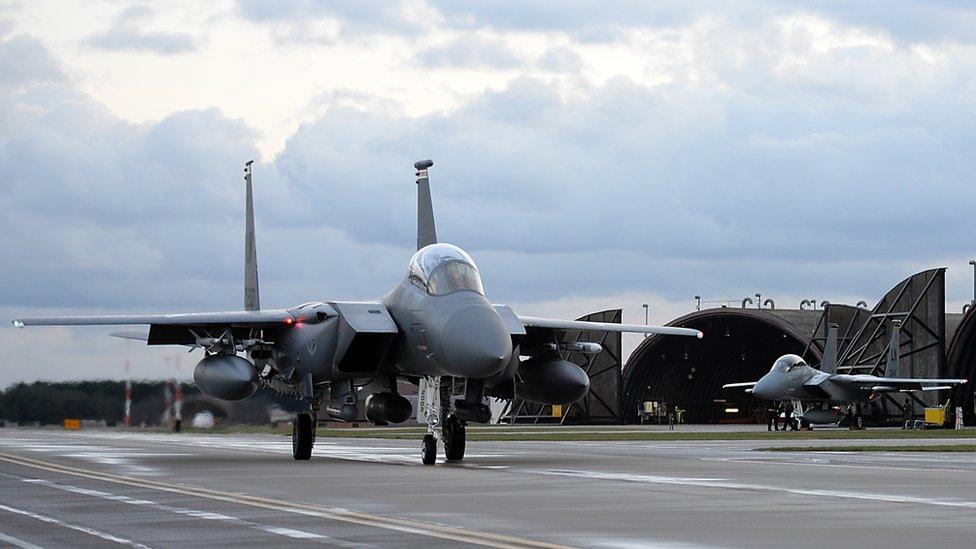UK aviation chief urges arrest of laser pointer owners
- Published

Heathrow airport was the most common spot for laser pointer incidents in 2015
People found carrying powerful laser pointers should be arrested, even if they are not in use, the head of the UK's aviation regulator has said.
Andrew Haines, chief executive of the Civil Aviation Authority (CAA), says new legislation is needed to cut the number of laser attacks on aircraft.
It is an offence to act in a manner "likely to endanger an aircraft" under the existing Air Navigation Order 2009.
A government spokeswoman said it was "looking to make changes" to the law.
There is also a lesser offence of shining a light at an aircraft, but the CAA boss called for the law to be toughened so anyone found carrying a laser pointer can be arrested.
In an interview with the Press Association, Mr Haines expressed frustration at the difficulty in prosecuting people under the current legislation because of the requirement to "find the person undertaking the task and... demonstrate intent".
He said: "We and Balpa [British Airline Pilots Association], the pilots' trade union, are very keen that the government introduces legislation which means that the mere possession of these high-powered lasers by individuals not licensed for them would be a criminal offence.
"Why does Joe Bloggs walking down the street need a laser that can pop a balloon at 50 miles, that can cause permanent damage to a pilot?"
'Endangering passengers'
CAA figures show there were 1,439 laser attacks on aircraft in the UK last year. The most common location was Heathrow Airport, with 121 incidents, followed by Birmingham Airport which had 94, and Manchester Airport, which had 93.
Balpa general secretary, Brian Strutton, said the union was concerned over the "high number" of laser attacks in recent years.
"People need to understand they are not toys and pointing them at an aircraft can dazzle and distract the pilot at a critical stage of flight, endangering the passengers, crew and people on the ground."
An editorial published in the British Journal of Ophthalmology, external in April warned that pilots can focus on sudden bright lights.
This means a laser attack can cause them to be dazzled and leave them with an after-image.
According to the journal, between 500,000 and one million laser pointers, pens, and key rings are thought to have been in circulation over the past decade.
A government spokeswoman said that anyone found guilty of shining a laser at an aeroplane could be liable to a fine up to a maximum of £2,500.
She added: "We take this issue very seriously and we continue to work with other government departments, the CAA and industry to determine how best to control the sale, use and possession of laser pens.
"We are looking to make changes as soon as possible."
- Published15 February 2016

- Published15 February 2016

- Published4 March 2016
